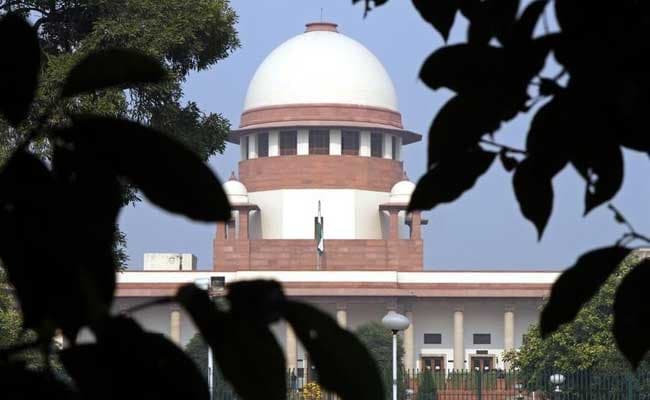
The bench, after hearing part arguments on Friday, fixed the matter for further hearing on February 12.
New Delhi:
The Supreme Court on Friday commenced hearing to revisit its two-decade-old verdict on the anti- defection law by which a member elected or nominated by a political party continues to be under its control even after expulsion.
The issue had cropped up after Amar Singh and cine star Jaya Prada, who were members of Rajya Sabha and Lok Sabha respectively, had moved the Supreme Court on their expulsion from the Samajwadi Party on February 2, 2010, anticipating ouster from Parliament.
They had contended that they have landed in a piquant situation as expelled members and apprehended disqualification under the anti-defection law if they chose to defy party's whip on any issue in Parliament.
Making a submission before a bench of Justices Ranjan Gogoi, Arun Mishra and Prafulla C Pant, counsel for the two former MPs, said the interpretation of the anti-defection law, as per a 1996 ruling of the apex court, does not apply to them as they did not form their own party.
The bench, after hearing part arguments on Friday, fixed the matter for further hearing on February 12.
Giving details of submissions made before the bench, advocate P S Sudheer, said it was argued that the Anti- Defection Law, as interpreted by the Supreme Court in G Vishwanathan case, does not apply to Amar Singh and Jaya Prada as they had not resigned from the party and neither had they floated their own.
He said the bench has also sought written submission on the question of law by February 10.
As per the interpretation of the anti-defection law by the Supreme Court in G Vishwanathan case in 1996, a member elected or nominated by a political party continues to be under its control even after his or her expulsion.
The issue had cropped up after Amar Singh and cine star Jaya Prada, who were members of Rajya Sabha and Lok Sabha respectively, had moved the Supreme Court on their expulsion from the Samajwadi Party on February 2, 2010, anticipating ouster from Parliament.
They had contended that they have landed in a piquant situation as expelled members and apprehended disqualification under the anti-defection law if they chose to defy party's whip on any issue in Parliament.
Making a submission before a bench of Justices Ranjan Gogoi, Arun Mishra and Prafulla C Pant, counsel for the two former MPs, said the interpretation of the anti-defection law, as per a 1996 ruling of the apex court, does not apply to them as they did not form their own party.
The bench, after hearing part arguments on Friday, fixed the matter for further hearing on February 12.
Giving details of submissions made before the bench, advocate P S Sudheer, said it was argued that the Anti- Defection Law, as interpreted by the Supreme Court in G Vishwanathan case, does not apply to Amar Singh and Jaya Prada as they had not resigned from the party and neither had they floated their own.
He said the bench has also sought written submission on the question of law by February 10.
As per the interpretation of the anti-defection law by the Supreme Court in G Vishwanathan case in 1996, a member elected or nominated by a political party continues to be under its control even after his or her expulsion.
Track Latest News Live on NDTV.com and get news updates from India and around the world

